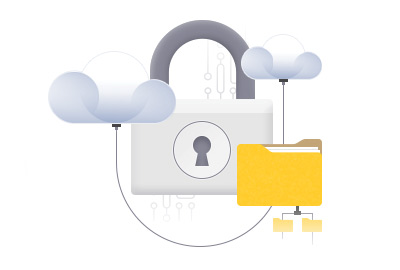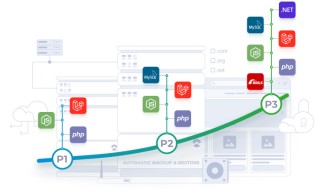
In today's digital age, your website is more than just a virtual storefront; it's a hub for communication, data exchange, and potentially, sensitive information. Whether you run an e-commerce platform or a simple blog, website security is paramount. A secure website fosters trust with your visitors, protects your data, and safeguards your brand reputation. Here, we explore five essential security considerations to keep your website safe from prying eyes and malicious attacks.
Why Website Security Matters: Defending Against Common Threats
Cybersecurity threats are a constant reality in the digital world. Ignoring website security can expose you to a range of dangers, including:
- Data Breaches: Hackers can exploit vulnerabilities to steal sensitive data like passwords, credit card information, or personal details of your users.
- Malware Infection: Your website can become infected with malware, which can steal data, redirect users to malicious websites, or disrupt website functionality.
- Phishing Attacks: Hackers can create fake login pages that look identical to your website, tricking users into surrendering their login credentials.
- Denial-of-Service (DoS) Attacks: These attacks can overwhelm your website with traffic, making it inaccessible to legitimate users.
These threats highlight the importance of implementing robust security measures to protect your website and your users.
Building a Secure Fortress: Best Practices for Website Security
Now that we understand the threats, let's explore best practices for building secure websites:
- Secure Coding Practices: A foundation of secure software development lies in following industry-standard coding practices that minimize vulnerabilities. This includes practices like proper input validation and avoiding common coding errors that can be exploited by hackers.
- Strong User Authentication: Implement a robust user authentication system with features like strong password requirements, two-factor authentication, and secure password hashing to protect user login credentials.
- Data Encryption: Sensitive data, like credit card information and user passwords, should be encrypted both at rest (stored on the server) and in transit (being transmitted between the user and your server). This adds an extra layer of security, making it difficult for hackers to access even if they breach your system.
- Regular Security Updates: Software vulnerabilities are constantly discovered and patched. Regularly update your website's content management system (CMS), plugins, and any other software components to address vulnerabilities and patch security holes.
- Secure Hosting Provider: Choose a reputable web hosting provider that prioritizes website security. Look for features like firewalls, intrusion detection systems, and regular security audits to ensure your website is hosted in a secure environment.
Beyond the Basics: Additional Security Considerations
Here are some additional security measures you can consider:
- Vulnerability Scanning: Regularly scan your website for vulnerabilities using security scanning tools. This identifies potential weaknesses that can be addressed before they are exploited by hackers.
- Employee Training: Educate your employees about cybersecurity best practices to prevent them from unknowingly clicking on malicious links or falling victim to phishing attacks.
- Regular Backups: Maintain regular backups of your website data. In the event of a security breach or other unforeseen event, backups allow you to recover your website quickly and minimize downtime.
Webxloo: Your Partner in Building Secure Websites
At Webxloo, we understand the critical importance of website security. Our team of experienced developers prioritizes security throughout the development process to create websites that are robust and resilient. We offer:
- Secure Website Development: We follow secure coding practices and utilize secure development frameworks to minimize vulnerabilities in your website.
- Security Audits and Assessments: We offer security audits and assessments to identify potential weaknesses in your existing website and suggest corrective measures.
- Ongoing Security Monitoring: We can provide ongoing security monitoring services to detect and address security threats proactively.
- Compliance Expertise: Our team can guide you in ensuring your website adheres to relevant industry security regulations.
Investing in Website Security: A Sound Business Decision
Website security is not an afterthought; it's a fundamental component of a healthy online presence. By implementing the best practices outlined above and partnering with a security-focused web development team like Webxloo, you can build a website that is secure, trustworthy, and empowers you to achieve your online goals with confidence.
Contact Webxloo today! Let's discuss your specific website security needs and explore how we can empower you to build a secure digital haven for your business and your users.


 Phone Consultation
Phone Consultation
 Request a quote
Request a quote
 Text a Message
Text a Message